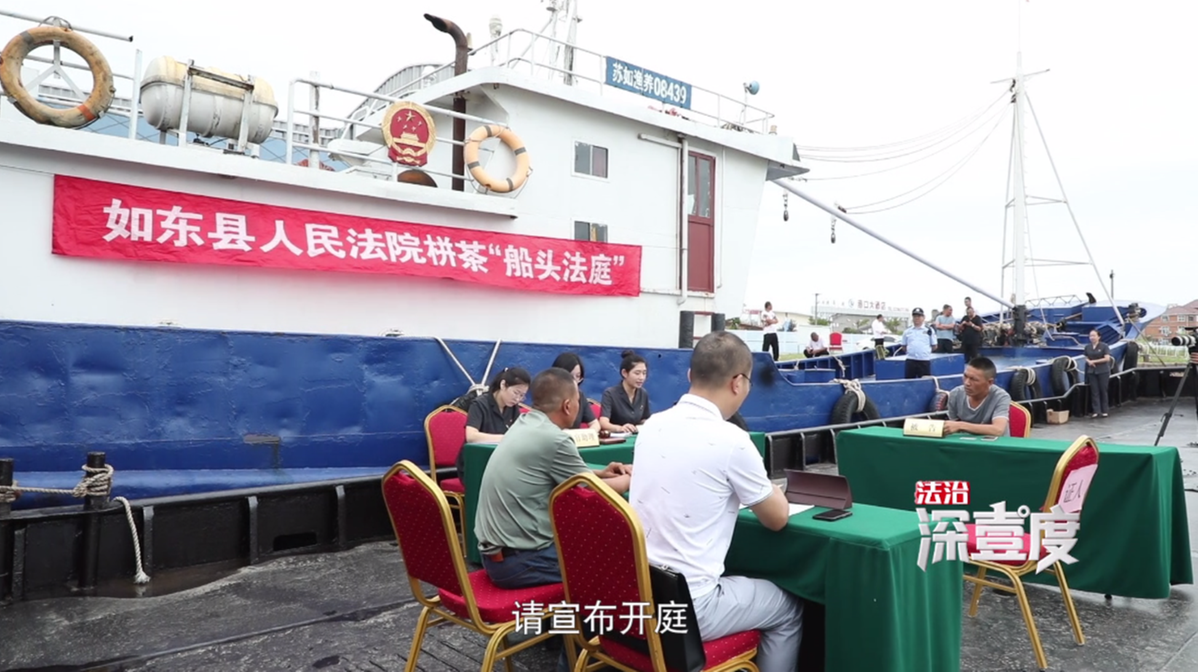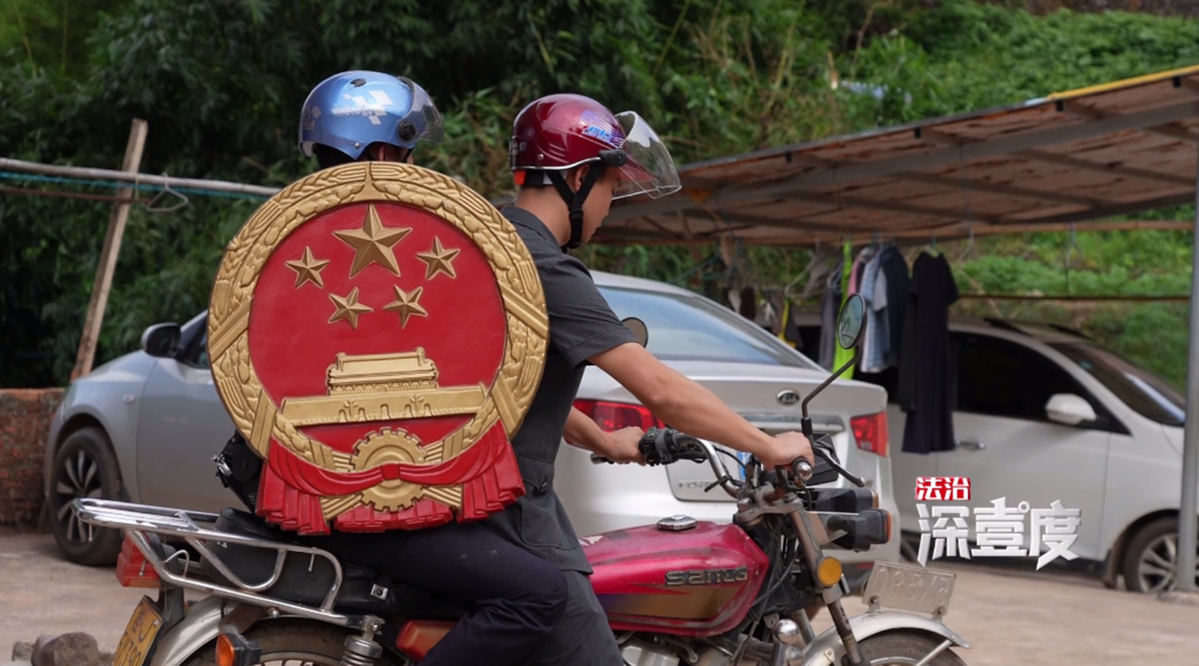Courts show why they are called people's courts


"A little right...Good. It's in the middle."
At Bingcha town, a coastal port town near the Yellow Sea in Jiangsu province, a female judge was coordinating with two fishermen hanging a banner at one side of a fishing boat. Then with the national emblem hung beside it, and three desks put on the dockland, a court opened there.
The court is part of a move adopted by the local court. Considering that quite a high percentage of the local population is into fishing and spend very little time on the land, local judges have decided to open circuit courts on the docklands where the fishermen could solve their disputes conveniently during breaks, thus saving a whole day of having to travel tens of kilometers away. Both the judges and the fishermen gladly call it "boat court".
It's only one of the 12 basic-level courts shown by People's Courts, a six-episode documentary broadcast by In-depth Legal Talk column of the CCTV The Law and Society Channel on Saturdays from Nov 5 to Dec 10. Besides the "boat court", the documentary also tells stories about a court in a tea house, court in a corn fields, and even a court on a motorcycle travelling to remote villages with the national emblem carried by judges.

Embodied in these courts is the essence of "people's courts": They serve the people. By opening the courts in villages rather than their own office buildings, the judges mean to save trouble and energy for residents. Besides the locations, the people's courts so care about the people that the one in Tiantongyuan community, Changqing district of Beijing Municipality opens in the evening so that the young people who account for the highest percentage in the community could save the trouble of having to ask their employer for a day's leave.
Most of the cases dealt in the basic-level courts are rather small. Of the 12 cases in the 12 courts in the documentary, most are economic disputes such as debt dispute in which a hotel management company could not pay its rent, or consumption dispute such as a bride finding her wedding dress suffered from discoloration in a laundry shop, or others such as big dogs biting a small dog.
Instead of issuing a verdict as often shown in European and US courts, the basic-level judges often tend to mediate among the litigants involved. "I can make a judgment and order the hotel to pay their rent, but that would lead to their bankruptcy," said Lyu Lei, the judge in Wuzhen town, Tongxiang city of Zhejiang province, where the hotel rent dispute happened. "In that case the house owners would win the lawsuit without getting their money, which is not an effective protection of their interests."
Their solution instead is to mediate between the two sides, which leads to them agreeing to introduce third-party funds to revive the hotel. With the anti-pandemic measures optimized, tourist flows to Wuzhen are recovering, bringing hope of every side's interests being protected.


































